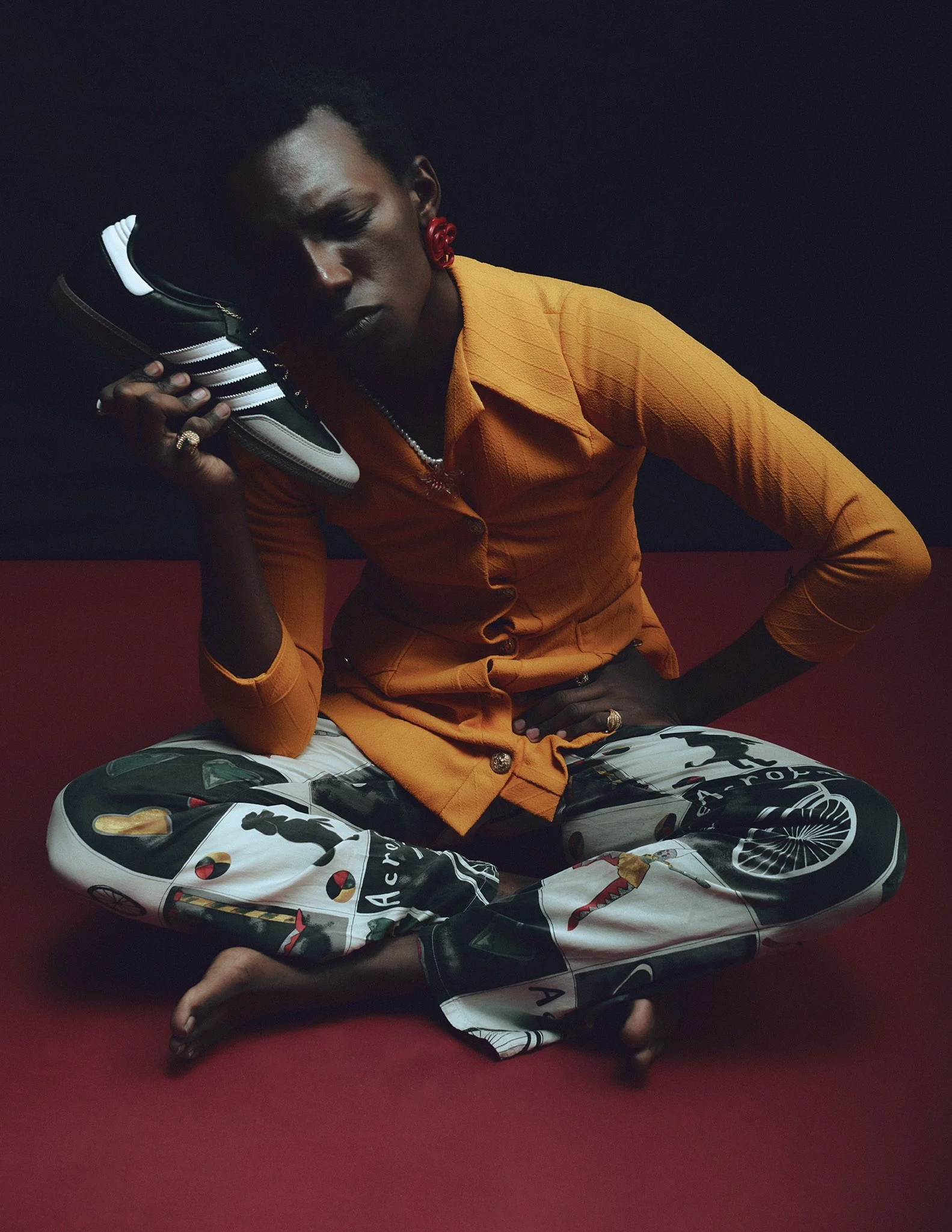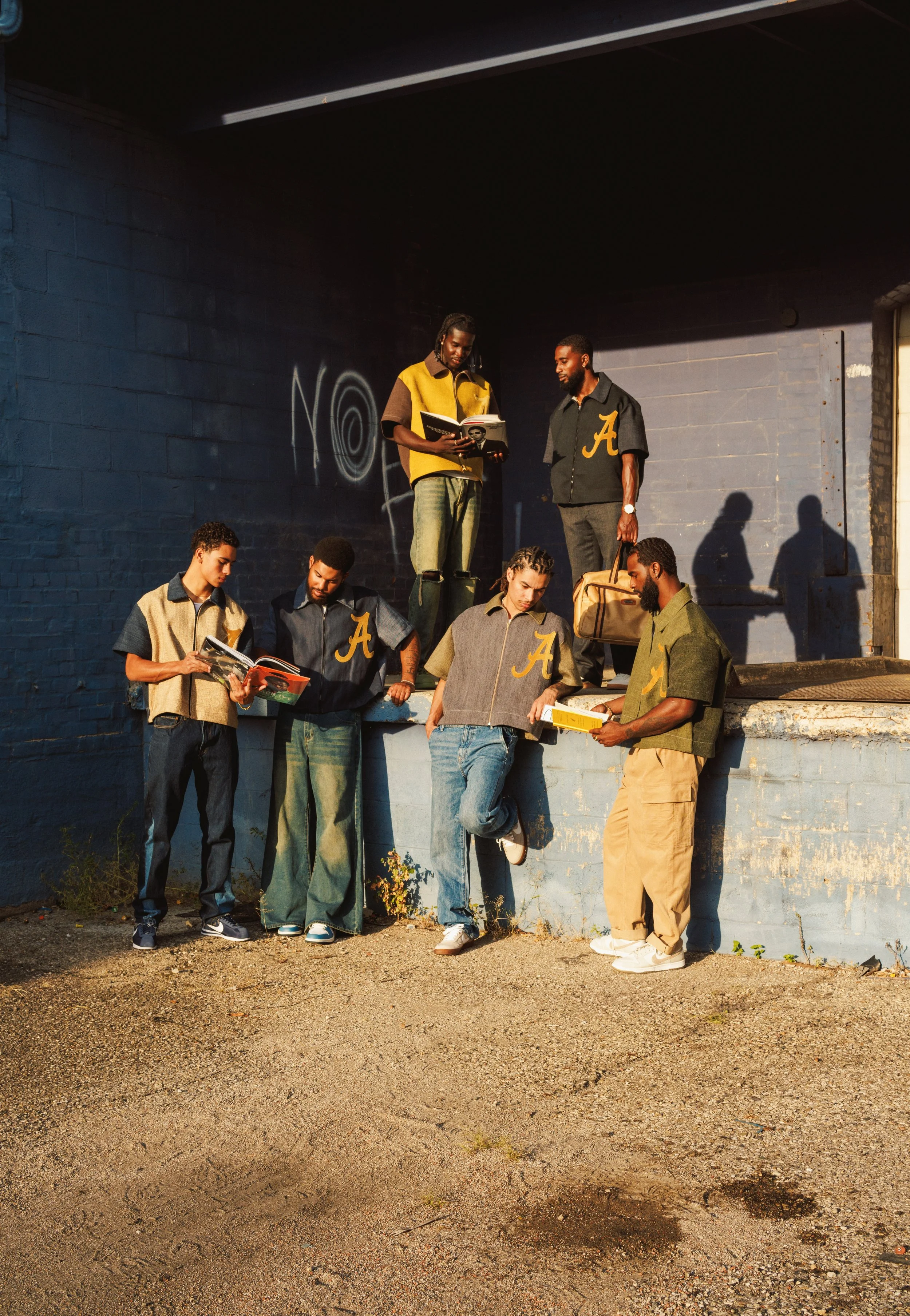chad hudson
Chad Jamil Hudson (b. 1997, Chicago) connects style, history, and literature to produce colorful stories. He strives to emphasize and uplift others through strategic messaging and strong imagery. Chad has directed fashion campaigns, assisted celebrity stylists, and contributed to editorial writing. He operates behind the scenes elevating brands and personas alike.
Artist Interview
1. How do you overcome creative burnout/ artist block?
It sounds simple but something that really helps me is taking a break from “the thing”. Over the years I’ve found that forcing myself to “power through” usually leads me to further exhaustion and empty ideas. Conversations also tend to help me feel free and inspired; I like bouncing ideas off of people that I trust. Growing up my mother lived by the saying, “Make do of what you have” So I really lean on my library card these days; reading and researching has helped me tremendously.
2. What motivates you to keep creating?
I love storytelling. Stories have the unique ability to teach and unite people regardless of their complexities. We all have differing opinions, perspectives, and experiences but typically if the art resonates it ignites a conversation; which is powerful if you think about it.
3. Is there anything outside of art that you practice?
My faith is important to me, it helps me stay grounded and out of trouble. There are many times when I want to rush decisions based on a variety of reasons but I really try to take the time to pray and read about it.
4.What does being an artist mean to you?
Creative problem solving.
5.How long have you been creating?
Since I was two years old, I played basketball for about twenty years which is a lengthy amount of time. Sports really allowed me to engage in a lot of problem solving in some intense moments.
6. Tell us about a specific experience that helped shape you as an artist.
Getting hit by a car almost a year and a half ago. I thank God because it was the first time in a while I felt the need to slow down and look honestly at the work that I was doing. The result of that experience made me more intentional but it also made me less afraid to pursue the things that were important to me.
7. What is something you wish the past you knew and what is something that you would like to tell your future self?
To give myself an adequate amount of time to finish/learn something. Oftentimes, I expect myself to get something on the first try. But I’m learning that the good things truly do take time.
8. How do you know when a piece of work needs more work and when it is finished?
For me, it’s similar to a feeling of exhaustion but I’m not really tired I just know that I don’t have much left to give. It’s kind of like doing a puzzle you stop when you run out of pieces to match. I stop when I start to add unnecessary fluff.
9. How do you handle criticism of your work?
It’s a constant learning process. When it’s constructive, I try to engage with it by listening first to seek the truth in it. I also may ask myself questions to gain greater clarity about my values in the moment. This helps me when taking the next steps. It allows me to determine whether me and the person providing the feedback share the same values; which is important for the end result.
10. What are your long term goals?
I’d like to explore new ways for my work to live with people long-term. Connecting people with opportunities is also very important to me.
11. What is something you struggle with?
Patience, I think I could be more patient with myself.
12. Do you have a mentor? Do you think having one is important?
Yes, I do and I don’t believe that I’d be where I’m at today without their help. Although, I have one, I believe that one can have many for different areas, why not have more resources to learn from?
13. What are you doing to ensure that you are continuing to grow and develop as an artist?
Prioritizing experimentation/purposefully getting it wrong. I get a lot more data that way. Also, investing time in my faith, for me developing personally pours into other areas of my life.
14. What role do you think artists have in society?
To express themselves, the present, and the future. I think I’d also like to add problem solving to the mix but maybe that’s something for artist to grow into.
15. How has being an artist affected the way you express yourself & communicate with others?
I’m pretty sensitive, so I like to take my time with things. I probably won’t rush to express anything I don’t fully believe in.
16. Has your relationship with yourself changed because of the art you create?
Yes, it’s forced me to be more humble and more honest. I feel like that’s the only way to evoke a feeling through your work otherwise it can seem like noise.
GALLERY


